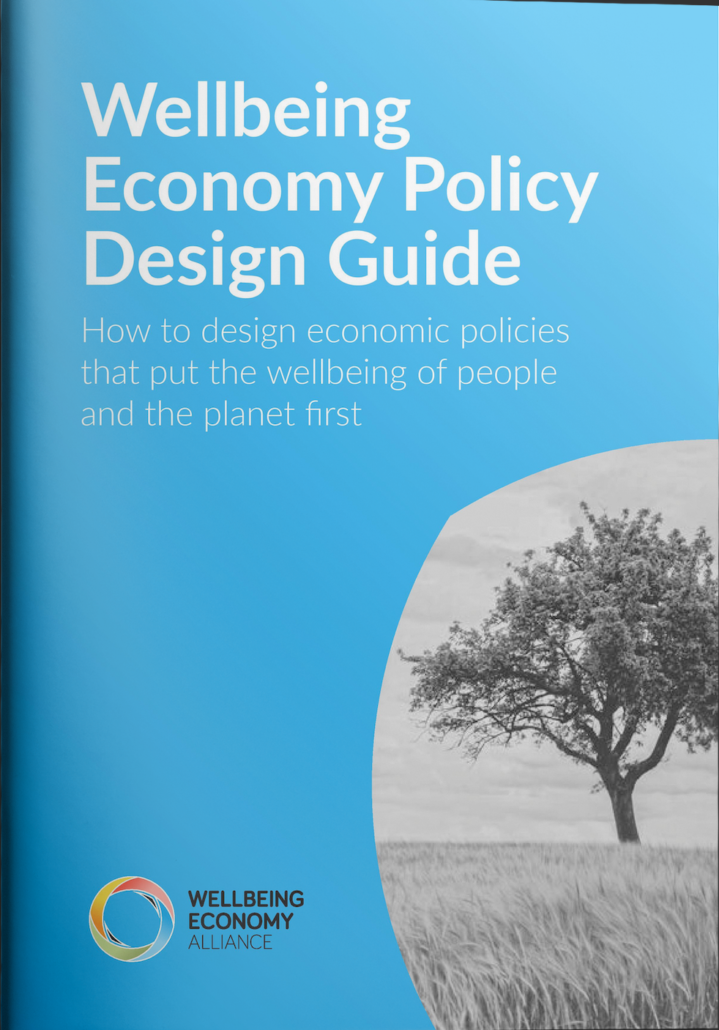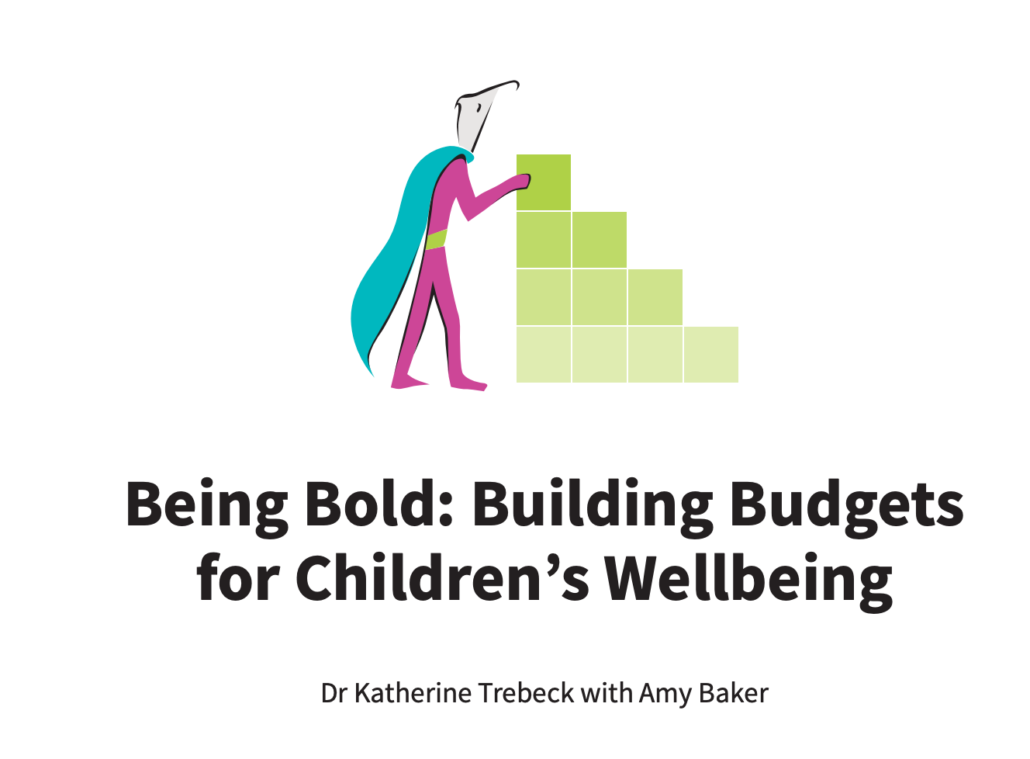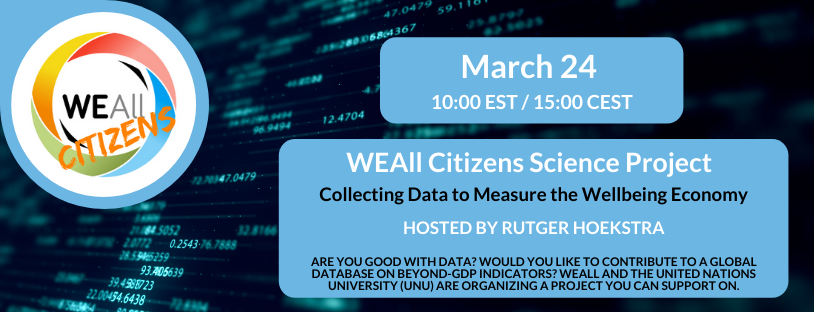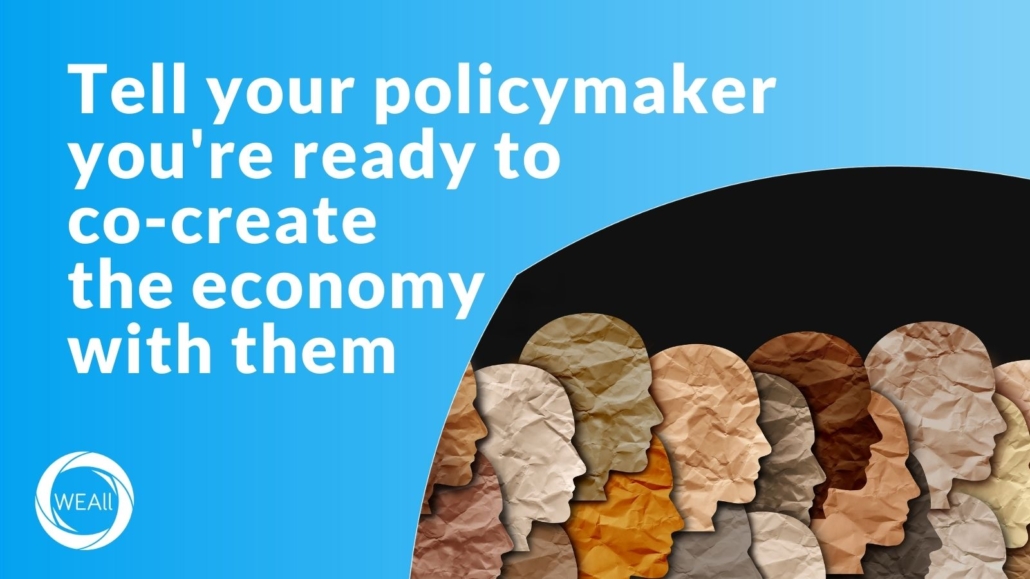This website uses cookies so that we can provide you with the best user experience possible. Cookie information is stored in your browser and performs functions such as recognising you when you return to our website and helping our team to understand which sections of the website you find most interesting and useful.
As part of our work to amplify the important work in the Wellbeing Economy movement, these WEAll Weekly Update blogs will share some of the latest and greatest updates from our membership and beyond. Please use the comment box to share any relevant updates from this week and keep the conversation going!
Weekly Reads

WEAll Policy Design Guidebook
“This guide has been co-created by the Wellbeing Economy Alliance (WEAll) to support visionary policy makers, to build more just and sustainable economies for people and planet.”

Being Bold: Building Budgets for Children’s Wellbeing – Dr. Katherine Trebeck
“The report argues that the Scottish Government’s stated aims of improving wellbeing across society and addressing the fact that one quarter of children live in relative poverty cannot be met unless we create conditions for our youngest children to be healthy and supported from the outset.”
Chasing Carbon Markets: The Deception of Carbon Markets and “Net Zero”
“Net zero” is a smokescreen, a conveniently invented concept that is both dangerous and problematic because of how effectively it hides inaction. We have to unpack “net zero” strategies and pledges to see which are real and which are fake. Fake zero strategies rely on offsets, rather than real emission reductions. Real zero strategies require emissions to really go to zero, or as close to zero as possible
Mindset Shifts: What are they? Why do they matter? How do they happen?
This report is intended as a resource for all those working on and funding mindset shifts.The research yields clear lessons and recommendations for how advocates, activists, funders,and other practitioners can maximize the impact of their efforts to change how we thinkabout social issues in order to change the contexts and structures that shape our experiencesand realities
SBTI … Net Zero Targets … TCFD … ESG Investment … resistance bubbles up that ‘trust us, we’re big’ is not sufficient any longer
It is clear that ‘business as usual’ is not sufficient any longer (and hasn’t been for long), and remaining incremental ‘steps in the right direction’ are wilful predatory delay and not part of the solution. Now, do we have the tools at hand to react sufficiently and responsibly?
Devastatingly pervasive: 1 in 3 women globally experience violence
“Violence disproportionately affects women living in low- and lower-middle-income countries. An estimated 37% of women living in the poorest countries have experienced physical and/or sexual intimate partner violence in their life, with some of these countries having a prevalence as high as 1 in 2.”
Health Verses Wealth?
“This briefing, by drawing attention to the longer term interactions between public health and the economy, dispels the myth that measures to protect public health are necessarily detrimental to economic well-being. Whilst difficult choices do have to be made, this ‘health versus wealth’ mentality is shown to be a false dichotomy.”
The Key to Good Collaboration, by Mark Gough
“So why then, when almost every organization claims that “collaboration is key”, do we often feel that it is an annoyance, a necessary evil and that it slows down progress?”
Changing Words to Change Society: The Marriage Equality Case in the US
By focusing on what Susan Blackmore calls memes, core ideas that help shape culture, like words and phrases, we wanted to visualize whether a controversial issue like marriage equality and the language used to describe it changed over time
Participation and Change: Lessons From the Future
“Participatory processes are giving us glimpses of how we can mainline public opinion into decision-making and regulate for the type of climate action that would match public concern. I am certainly excited by the developments and momentum in participatory and deliberative democratic processes. But how confident are we that these types of process will always truly reflect a public mandate?”
Building the Transition Together: WEAll’s Perspective on Creating a Wellbeing Economy
There is not one blueprint for a Wellbeing Economy; the shape, institutions and activities that get us there will look different in different contexts, both across countries and between different communities within countries. However, the high-level goals for a Wellbeing Economy are the same everywhere.
Job Openings & Opportunities
- Remade Network – Various Positions
- AFIDEP– Various Positions
- Associate Program – On Purpose
- Professor of Wellbeing Economy – University of Glasgow
- Various positions – The World Transformed
- Feminist Graphic Designer
What to Watch
- WEAll Policy Design Guide Launch Event Recording
- TEDxGRC Possible Futures | Panel 3: PLURIVERSALITY & REGENERATION
- The Economy of Wellbeing: A New Holistic Approach to achieve the Agenda 2030 goals
- WEAll Talk: Making Systems Change Happen with Irene Guijt & Ruth Mayne
- Peter Victor: Slower by design not disaster. managing without growth
- How the fashion industry is turning to forests for the fibres of the future | Rethink Sustainability
- Commencing 36×36!
Listen Up
- Banco Interamericano de Desarrollo
- Decolonising Design Thinking– The Conversation Factory
- Health, justice and the environment – the core issues– FEASTA
Upcoming Events
- March 3-20: What Next Summit – Transition Network
- March 18- 23: World Happiness Fest
- March 20 & 27: Dutch Global Health Film Festival
- March 21 – 29: Regen-Era Rising
- March 21: How Money Was Created with Steve Keen
- March 22: VisitScotland Business Events – Journey to Change Launch Event
- March 22- 26: Tackling legacies of Europe’s colonial past in the wake of Black Lives Matter

- March 24: WEAll Citizens Science Project: Measuring the Wellbeing Economy
- March 24: Learn How To Make Your Business More Sustainable
- March 25: Celebrating Black Women in Economics
- March 29 & April 5: Live Chat – MA Regenerative Economics
- March 30: WEAll Talk “36×36 Fostering a Femxle-Led Economic Revolution” with Amanda Janoo
- April 27 & 28: SEWF 2021
- May 17- 21: #ClimateExp0 Conference
- May 19 & 20: Impact Summit – FutureX
- Next Economy MBA “Meet the Instructors” – LIFT Economy
- Regeneration Pollination “Speed Networking” Events – the Global Regeneration CoLab
WEAll Originals
Blogs:
- Designing Policies for a Wellbeing Economy
- SURVEY: Business and the wellbeing economy
- Stories for Life
- Commencing 36×36!
- The Least Popular Buzzwords of 2020
- How do we ensure a Wellbeing Economy is inherently antiracist?
- A ‘Market for Values’ as an instrument for human and ecological wellbeing – Marco Senatore
Publications:

- WEAll Policy Design Guidebook
- Stories For Life
- Wellbeing Economy Messaging Guide– Positive Money, PIRC, NEON, and WEAll
- Measuring Wellbeing, Rutger Hoekstra
- Business in the Wellbeing Economy, Olga Koretskaya & Gus Grosenbaugh
From the Archives
- 10 Principles to Build Back Better
- Rebuilding to a US Wellbeing Economy
- What is a Wellbeing Economy?
- The Business of Wellbeing Guide
the discussion?
Let us know what
you would like
to write about!

